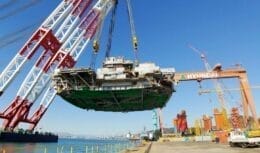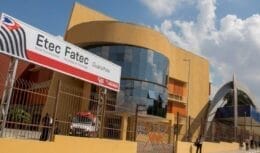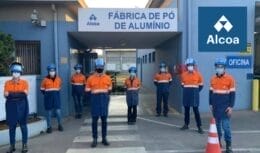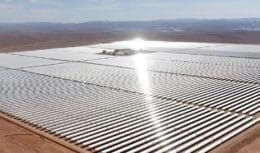Dependence on the country to import fertilizers, such as potassium, however, showed a lack of investment in science and technology for mineral extraction in the country
One of the biggest exporters of iron ore in the world, Brazil is currently in a situation of external dependence in relation to another critical mineral for food production: potassium, used as fertilizer in agribusiness, and imported from Russia. The Ukrainian War and the new global geopolitical scenario highlighted the country's vulnerability in relation to the extraction of strategic minerals. Currently, mining is already an important part of the Brazilian GDP, with revenues of R$ 339 billion/year.
Although it has a good diversity of mineral reserves, the lack of adequate investments in science and technology has been the major obstacle to the development of sustainable mineral extraction in the country, as well as technical training and a clear regulatory policy.
Iron ore accounts for 70% of mineral extraction in Brazil, but there are also reserves of lithium, copper, potassium, graphite, among others, in the national territory, which could be mapped and exploited by the public sector in partnership with the private sector.
There are 24 strategic minerals for Brazil
No webinar Strategic Minerals and the Energy Transition, performed by Energy Center of the Brazilian Center for International Relations (CEBRI), experts warned that strategic minerals are important assets in the new geopolitical configuration of value chains. According to an official survey, there are currently 24 minerals listed as strategic For the country. Some of them are important for low-carbon technologies, which will generate an exponential increase in demand by 2050.
“A window of opportunity for the energy transition is open and Brazil, although not a geopolitical power, is an environmental power. We have a good diversity of minerals. Brazil could be a protagonist in sustainable mineral extraction in a scenario of energy transition”, highlighted the Vice-President of the Board of Trustees of CEBRI, Jorge Camargo.
Um electric car, for example, requires six times more mineral inputs than a conventional car. According to estimates by the International Energy Agency (IEA), the demand for lithium should grow 40 times by 2040 and the demand for cobalt, graphite and nickel between 20 and 25 times. The presence of these minerals in Brazilian lands makes the country have enormous potential in this area.
Esteves Pedro Colnago, Director-President of the Geological Survey of Brazil, highlighted during the webinar the difficulties in mapping geological reserves in Brazil. “It is up to the geological service in Brazil to know, store and disseminate the Brazilian mineral heritage. We are approaching companies that are interested in contributing. There are difficulties and investments from the private sector are needed”, he pointed out. Colnago stressed that the extension of the Brazilian territory requires planning focused on reserves that have already been discovered and that have proven potential.
According to Julio Nery, Director of Sustainability and Regulatory Affairs at IBRAM and President of the Brazilian Commission for Resources and Reserves (CBRR), there are huge challenges for mineral extraction in Brazil and only 0,06% of the territory is explored, although the potential for generating wealth with mineral extraction is great. “The risk for research in mineral extraction is great, so it should be divided between the public and private sectors”, he pondered.
Investments in mineral exploration technologies
Edson Ribeiro, Director of Exploration and Mineral Projects at Vale, pointed out that countries in the European Union, Canada and China are well ahead of Brazil in investments in science and technology for mapping and sustainable exploration of strategic minerals. According to him, mineral extraction cannot be dissociated from good environmental practices.
According to Carlos Cesar Peiter, from the Center for Mineral Technology at the Federal University of Rio de Janeiro (UFRJ), Brazil lost state research centers in Bahia, Minas Gerais and Rio Grande do Sul that were important for research and development of mineral extraction in the country. The researcher pointed out the National Fertilizer Plan and the 2050 National Mining Program, which is being prepared, as important initiatives for Brazil not to miss opportunities in the energy transition.
According to the participants, it is still necessary to combat misinformation and prejudice against mineral extraction in the country. “ IBRAM understands that it is possible to develop responsible mining, including in indigenous lands, this already happens in other countries in a sustainable way. It cannot be done without community consent. There is a proposal in parliament and this is provided for in the Constitution. Mineral extraction must be carried out anywhere in the territory in a sustainable and organized manner, with the dissemination of good practices. It is important to increase society's trust in the sector”, said Julio Nery.
Authorial Source – CEBRI











